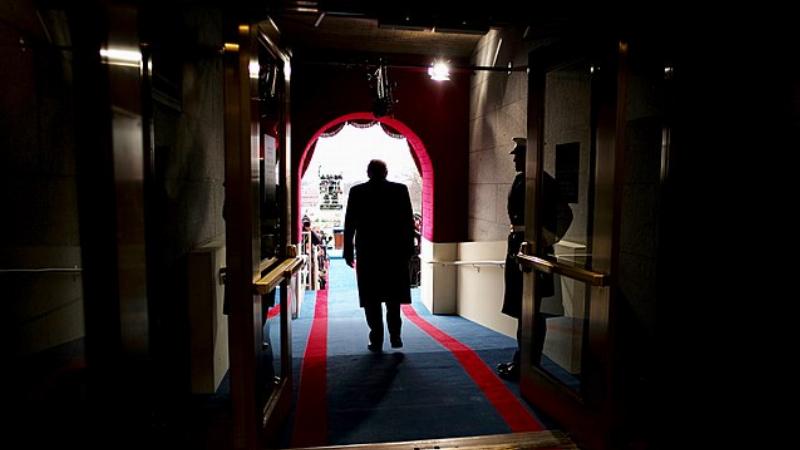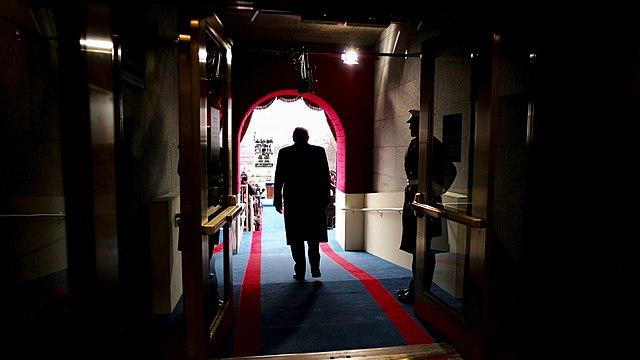


During his June 28, 2024 televised debate with Joe Biden, former President Donald Trump stated: “I will have that war settled between Putin and Zelenskyy as president-elect before I take office on January 20th.” Sound implausible? In 1905, an earlier Republican president, Theodore Roosevelt, mediated an end to the Russo-Japanese war in a month. It could happen again.
In February 1904, the battle for influence in Asia between Russia and Japan became a shooting war when Japan attacked Russian fleets in Manchuria (China) and Korea. In 1955, deciding a probate appeal involving a former resident of Manchuria, a California court summarized the causes of the 1904-1905 war in Estate of Nepogodin:
In the late 19th and early 20th centuries Russia and Japan extended their influence into Manchuria acquiring seaside territories and developing railways. The Russo-Japanese war (1904-1905) was partly fought in Manchuria. … In the 1905 Treaty of Portsmouth [New Hampshire] which ended said war both states agreed to restore Manchuria to China, but nevertheless both retained influence there. The influence of Russia was mainly limited to an interest in the quasi-private Chinese Eastern Railway whereas Japan held another railway and the seaside territories and embarked on the economic penetration of Southern Manchuria.
After significant victories, in May 1905 Japan’s fleet defeated a Russian fleet in the Tsushima Strait between Korea and Japan. Observers compared Japan’s victory to Admiral Nelson’s victory over the French at Trafalgar in 1805. The Japanese cruiser NISSHIN distinguished itself at Tsushima, as did Ensign Isoroku Yamamoto, a young NISSHIN officer wounded by shrapnel. In 1941, Yamamoto planned Japan’s attack on Pearl Harbor.
According to the U.S. State Department Historian, “by 1905, the combination of [Russia’s] losses and the economic cost [to Japan] of financing the war led both countries to seek an end to the war. Japan asked U.S. President Roosevelt to negotiate a peace agreement.” Russia assented, and delegations from the belligerents and the United States gathered in Portsmouth, New Hampshire, in August 1905.
Why Roosevelt? In 1905, the U.S. was still a fledgling power but our 1898 victory over Spain made America the new sovereign in the Philippines and other Spanish possessions in the Pacific. In 1898, then-Assistant Secretary of the Navy Teddy Roosevelt was a prime mover behind the war with Spain. Roosevelt also studied Japanese sea power amply demonstrated at Tsushima.
In August 1905, as they came ashore at the Portsmouth Naval Shipyard, Thomas Edison filmed Russian and Japanese negotiators in top hats, tails, and straw boaters. The State Department Historian explained that “[for] the sake of maintaining the balance of power and equal economic opportunity in the region, Roosevelt preferred that the war end on terms that left both Russia and Japan a role to play in Northeast China. … Roosevelt worried about the consequences to American interests if Japan managed to drive Russia out entirely.” The treaty signed in Portsmouth on September 5, 1905, secured the peace by (as the Nepogodin court put it 50 years later) restoring Manchuria to China, while both belligerents maintained influence there.
When President Roosevelt died in 1919, H.L. Mencken wrote acidly in Roosevelt: An Autopsy that Roosevelt’s “model in Weltpolitik” — imperialism — was German Emperor Wilhelm II. Manchurians enduring Japan-Russia competition for influence over their homeland after 1905 might have agreed. But whatever historians may think of the outcome, Roosevelt’s role as mediator and the pace of negotiations were exceptional.
Is former President Trump’s commitment to end the Russia-Ukraine War a reach? Russian President Putin has stated publicly he takes Trump “quite seriously”. Ukraine President Zelenskiy commented “If Trump knows how to end this war he should tell us today.” Neither Putin nor Zelenskiy ruled out a Trump mediation.
What of former President Trump’s timeline for ending the war by Inauguration Day, 2025? The 1905 treaty ending the Russo-Japanese War was concluded in a month, without the tools available to modern diplomacy. Rather, the negotiation was conducted person-to-person by motivated diplomats with instructions from their heads of state, supplemented by the telegraph, the transatlantic cable, and rudimentary telephones.
The 1905 Portsmouth Treaty is a testament to strong American diplomacy and global leadership with cautionary overtones. In 1905 the interests and sovereignty of China and Korea apparently mattered little to negotiators, except to the extent they advanced or impeded Russian, Japanese, and American objectives. As such, the 1905 treaty laid groundwork for future conflict in Asia.
Flaws and all, however, Roosevelt’s 1905 peace-making between Japan and Russia was an extraordinary accomplishment. It is instructive about what might be done in 2025 between Ukraine and Russia, with willing antagonists and the right American president.
The author served in the Navy in submarines and in Iraq and was a U.S. Senate lawyer.

Image: Public domain.
